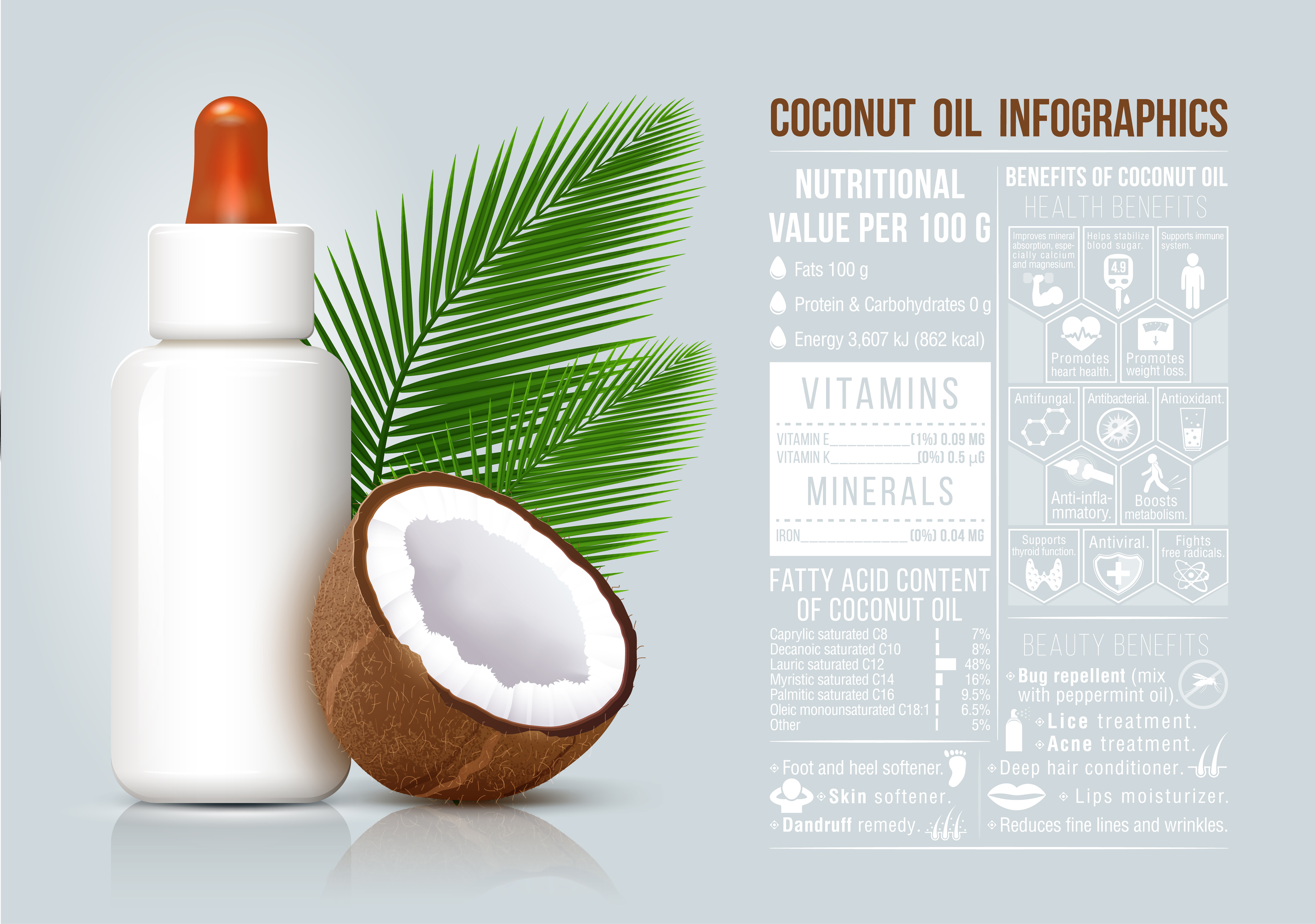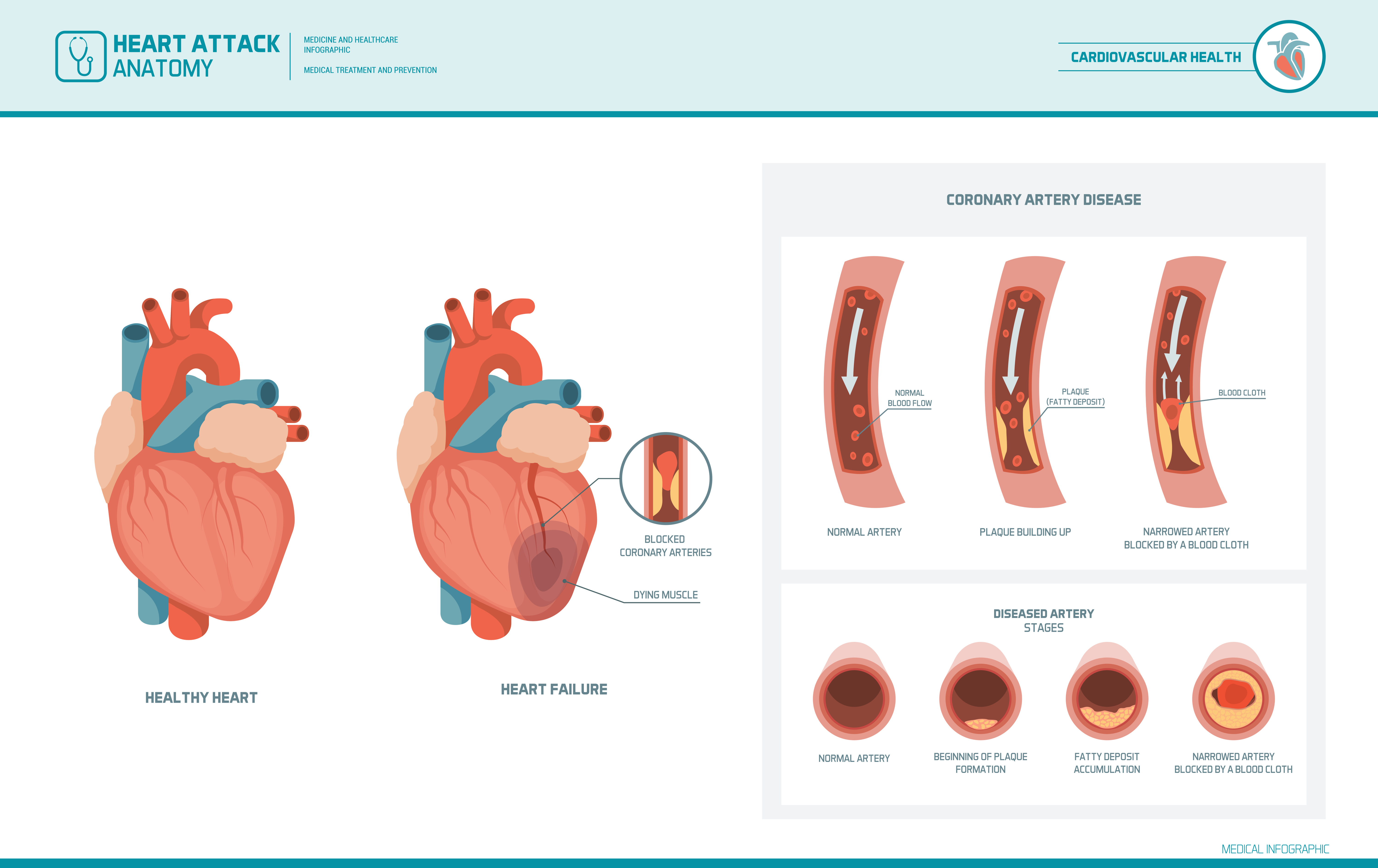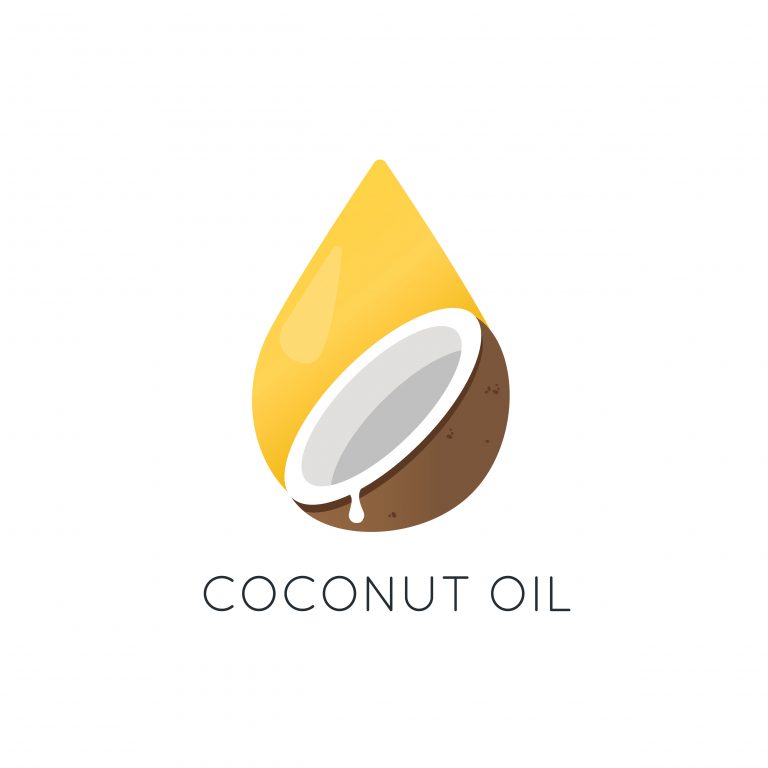Coconut oil in recent times has become one of the most desirable oils among active people and those who care about their figure. We have quickly appreciated its properties, but also the fact that this unrefined beautiful smells, has a good price and does not change the taste of dishes, and these are important facts that attract the consumer. The more so because oil was considered the "culprit" of obesity, which fortunately changed.
What is coconut oil?
Coconut oil is a vegetable oil that we get from pressing, but also warming coconut pulp. We can buy two types:
- unrefined coconut oil, which has a very pleasant, coconut smell and taste, but still does not change the taste of dishes. You can fry on it. This oil is unpurified and contains all nutritional values. Its price is slightly higher;
- refined coconut oil, is actually odorless, tasteless, suitable for frying. This oil, compared to the previous one, is subjected to processes such as heating or bleaching. It retains the profile of fatty acids, but is devoid of a certain amount of ingredients that are responsible for its valuable properties. It's a bit cheaper.
Both of these oils can be subjected to quite high temperatures, after being dissolved they have a slightly yellow colour. Many studies have shown that refining does not significantly affect the content of beneficial substances, but above all, the oil loses its pleasant aroma. Therefore, both have their supporters and opponents. Some buy unprocessed, because of its beautiful aroma, while others look at the price, choosing refined.

Is coconut oil harmful?
The bizarre statements made by the American Society of Cardiology are quite controversial. They proclaim that coconut oil, like butter, is harmful to our health, although it was previously thought to be a health-promoting element of our diet. Cardiologists say that this oil is full of saturated fatty acids, which will adversely affect cholesterol; above all, in their opinion, coconut oil elevates the LDL fraction, which is why this oil should be avoided. Similar rumors were also spread about butter, which is full of animal fats, and they are said to affect the deterioration of our health and well-being.
This information was caught up by the media and producers of margarine, claiming that hardened vegetable fats are definitely more "pro-health" than oil. It’s worth mentioning that coconut oil does not contain the same fatty acids found in butter or meat. It contains triglycerides with an average length of fatty acid chains, abbreviated MCT. These acids are metabolized in our body in a completely different way than fatty acids supplied, for example, from meat or butter. MCT acids go directly from our liver to the digestive tract, and there they are used as a source of energy. They can also be converted into ketone compounds that have a very good effect on our nervous system.
Saturated fatty acids to be shot down
For over six decades, fats have been saturated under fire. This happens due to the media, but also all pseudo dieticians and officials who deal with our health on a daily basis. Saturated fatty acids are stigma and it is recommended to eliminate them completely from your menu. Arguing that they are the culprits of many civilization diseases. Which is obviously not true.
These fats are also accused of having a negative impact on our health parameters, in particular on the increase of our cholesterol, but it is also said that these acids are responsible, among others, for the occurrence of obesity and cardiovascular diseases. There is a lot of research that was carried out on the islands, including Polynesia, where people consume a lot of coconut oil on a daily basis and there were no cases of people who suffered from cardiovascular diseases. Marketers convince us that saturated fatty acids were responsible for all the evil of our world.
The fatty acids that are contained in coconut oil are fatty acids with an average carbon chain. They are used even in infant milk, and are also given to chronically ill patients and people who have problems with the digestive system. Coconut oil has the ability to stimulate metabolic processes in our body. Studies that have been carried out showing that the replacement of long-chain fatty acids in the daily diet with an average chain can lead to a reduction of a body weight, which can not be said about margarine.
The precious presence of lauric acid
Lauric acid is one of the acids that are contained in coconut oil, it has many pro-health properties. It is a chemical compound that is found in large amounts only in coconut and in mother's milk, where it’s a very important element in building the child's immunity. This acid has a strong bactericidal and virucidal action, it destroys microorganisms that are covered with a lipid envelope (among others are: HIV virus, herpes virus, Helicobacter pylori bacteria). In contrast to antibiotics, which largely destroy our bacterial flora, killing bad, but also good bacteria. Monolaurin attacks only harmful viruses and bacteria. In addition, the properties of lauric acid make it can be very good when fighting infection, various rashes, skin problems, during acne treatment, as well as eczema. Almost 60% of the fatty acids contained in coconut oil are 12-carbonic lauric acids.
Coconut oil for hypercholesterolemia?
One of the arguments that coconut oil is attacked is that it raises the level of "bad" cholesterol, i.e. the LDL fraction. However, the research, which was carried out at the Institute of Physiology and Biophysics of KPC Medical College and Hospital, says something else. Namely, that coconut oil reduces the level of LDL cholesterol, and eating it significantly decreases the level of triglycerides. In addition, these studies show that coconut oil has the ability to raise HDL cholesterol. What's more, these scientists said that it works antithrombotic and anti-atherosclerotic, which totally destroys the theories that marketers have drawn. American and Polish Cardiac Society accuse butter and coconut oil for causing heart disease and cardiovascular disease, as you can see, the accusations are not confirmed in the research. These societies do not take into account that saturated fatty acids have different lengths of hydrocarbon chains and each of them has different effects on our body.

And what about margarine?
Margarines are mainly rich in hydrogenated fatty acids, and these are definitely more harmful than natural saturated fatty acids. When producing margarines, trans fatty acid isomers are usually formed. It also happens that they are artificially enriched with various vitamins, including A, D or K. It’s worth mentioning that the consumption of margarines affects not only our cholesterol, but our whole body. In many countries, including Iceland, Denmark, but also in Norway and Austria, the production of such foodstuffs, which would have more than 2 g of trans fat in 100 g of a given product, has been banned. For almost 60 years, it has been proclaimed to all and to the fact that trans fat does not have a bad effect on our health, moreover it has been said that they lower cholesterol and counter heart disease. This was very quickly intercepted by the producers, which turned out to be quite a good step towards bigger profits. There was a time when margarines were more willingly bought, but after many years, when they were examined in detail, the myth of their healthiness went into oblivion. Unfortunately, all saturated fat has been hailed as bad. Thus, consumers have also lost confidence in these naturally occurring saturated fatty acids, like the coconut oil described above. Consumers will be convinced that since one type of saturated fatty acids is bad, the other ones also. And among other things, the media convinced us of this error.
Summary
Do not be afraid of coconut oil. Despite the false theories, putting it permanently into your diet will be a good step towards your health. Of course, coconut oil should not be the only source of fat in our diet. The most important issue of healthy and reasonable nutrition is the variety. Then certainly we do not run the risk of shortages, and the use of coconut oil will carry not only a pleasant aroma, but also a lot of pro-health properties.







3 Comments